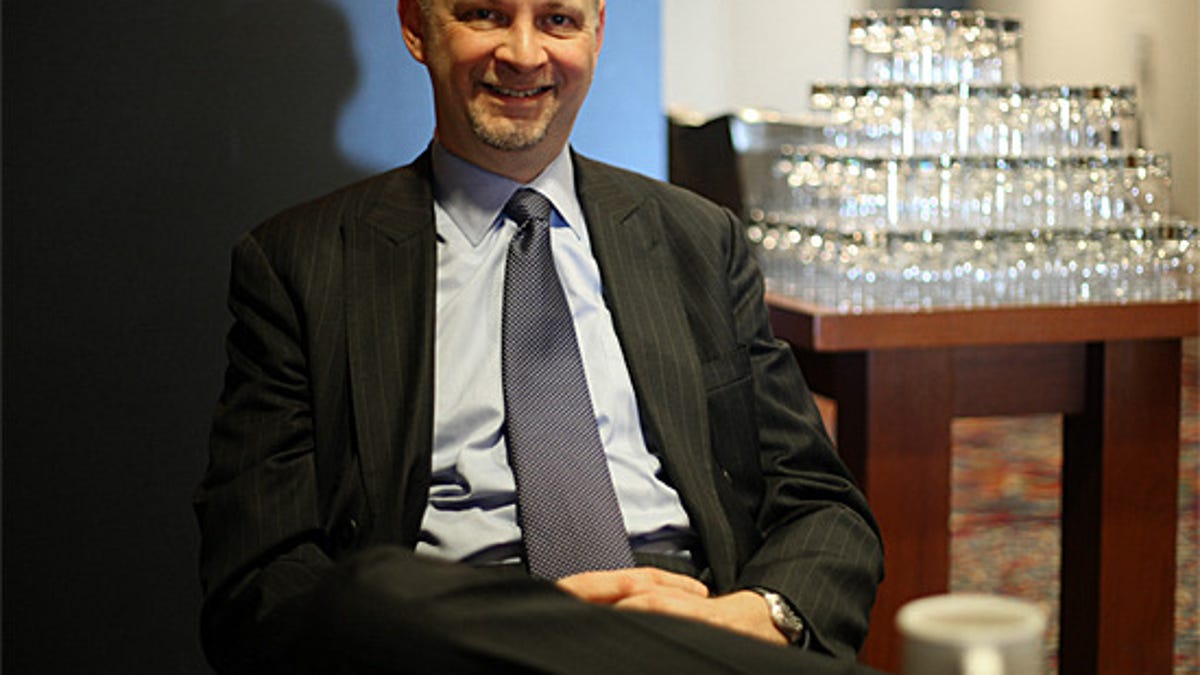Comcast: FCC opening Net neutrality door 'scary'
Comcast VP Joe Waz takes aim at FCC plan, saying it could apply "heavy burden of regulation" designed for analog telephone network to Internet.

PALO ALTO, Calif.--A Comcast executive on Friday took aim at federal regulators' recent Net neutrality decision, saying the move could apply the "heavy burden of regulation" designed for the analog telephone network to the Internet.
Joseph Waz, Comcast's senior vice president for external affairs, said the Federal Communications Commission appears to be "well-intentioned" in its decision announced earlier this week. (See CNET's FAQ on the topic.)
But, at a Stanford University conference, Waz said federal regulation "cannot be guided by good intentions alone" and "what could be applied once you've opened the door is scary." A future FCC, for instance, could choose to use the precedent to impose more telephone-era rules such as price regulation.
FCC Chairman Julius Genachowski's proposal--which will probably take the better part of a year to turn into formal regulations--"ultimately opens the door to the entire heavy burden of regulation," Waz said. He added that he has a 16-page legal memorandum drafted by Comcast's attorneys to read later in the day.
Genachowski's decision effectively imports telephone-style regulations and imposes a subset of them on broadband providers. It's designed to find a way around a recent ruling by a federal appeals court that said the FCC has no authority to levy Net neutrality regulations using a different regulatory justification, and is likely to invite future litigation.
"We do not want to stifle innovation and competition," Sherrese Smith, a legal advisor to Genachowski who also spoke at the Legal Frontiers in Digital Media conference. "The government should stay out of this as much as possible."
When asked why the FCC appears to be exempting wireless broadband from its Net neutrality proposal but targeting Comcast, Smith replied: "We'll be working on that."
Genachowski's announcement came only hours after two senior Democratic politicians sent a letter to the FCC saying that imposing Net neutrality regulations on broadband providers such as AT&T, Comcast, and Verizon is "essential." And Free Press, the liberal lobby group that's led the fight to hand the FCC more Internet regulatory authority, hastily convened a conference call to warn that Genachowski would be leaving President Obama's Net neutrality promises unfulfilled.
Earlier in the week, The Washington Post reported that Genachowski "has indicated he wants to keep broadband services deregulated," a position favored by companies that say sweeping new regulations will deter investment and be overly burdensome.
"Google is generally pretty excited" by the FCC's announcement this week, Daphne Keller, the company's senior policy counsel in Mountain View, Calif., said at the conference. It will "preserve the end-to-end design principles" of the Internet, she said.
"There is a role for government touching on the Internet, but it should be a narrowly-tailored role," Keller said.
Reclassification, however, is bitterly opposed by telecommunications companies, who predict it will harm consumers, hinder investment, and cost jobs. Net neutrality laws could endanger 65,000 jobs by 2011, with the total economy-wide impact growing to 1.5 million jobs affected by 2020 because of reduced revenue growth in the broadband sector, according to a recent report (PDF) sponsored by Mobile Future, which counts AT&T as a member. AT&T has lobbied against Net neutrality laws.
When the discussion swung to discussions of international law, Comcast's Waz said, "It's kind of hard to say to China, 'Do as I say, not as I do.'" While strict Net neutrality regulations are hardly the same as censorship and surveillance, he said, "all of us have to be sensitive to the fact that other nations are waiting for the green light to get more involved."

